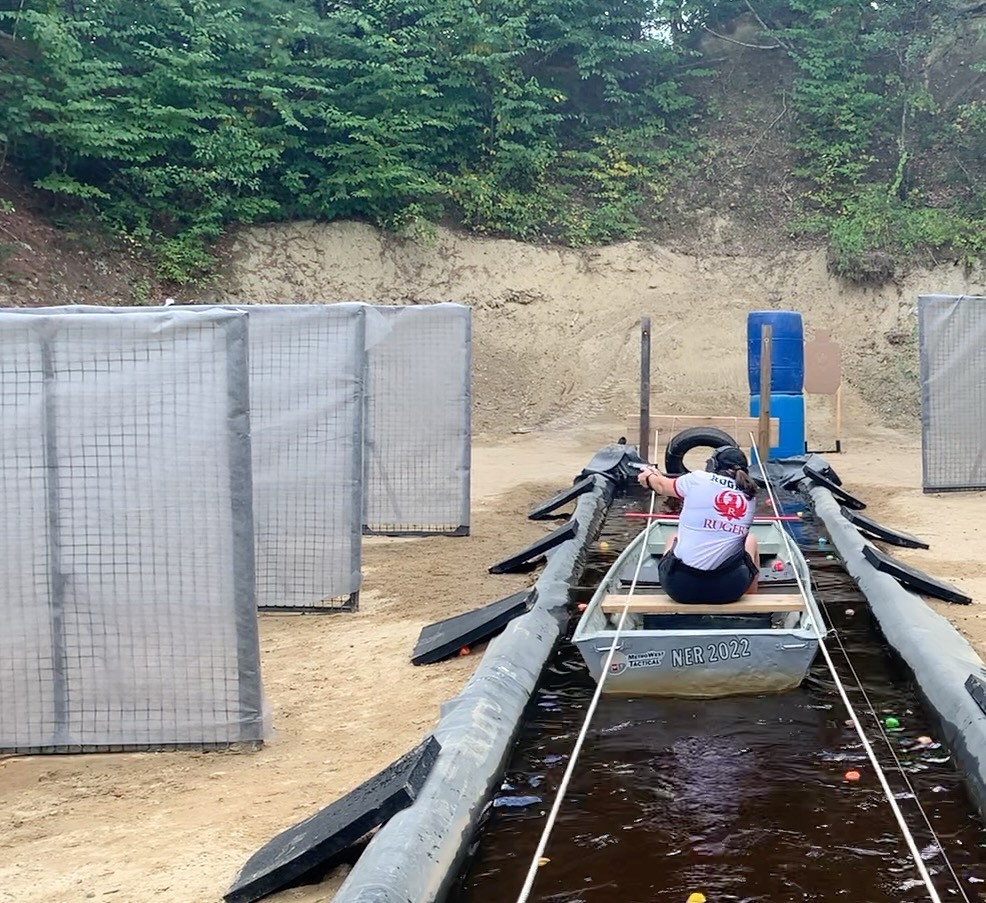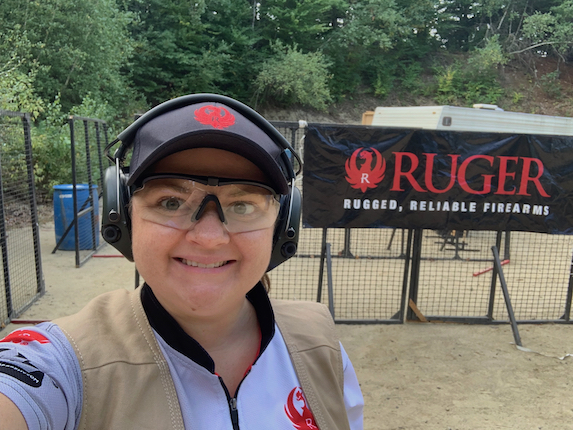Great stages usually mean lots of options, options can get your brain buzzing and make it difficult to concentrate. Avoid the “noise” of great stages by picking a plan and sticking with it.
R. Rogers
One of the things that I makes or breaks the “fun” factor of a match for me is options. Can I shoot a stage 2, 3, 4 different ways? Are there positions that can be added or skipped? Are there challenging target arrays? Are there left versus right choices? All of these help engage my brain and make the match very memorable. However, you don’t get something without giving something up. Matches with options can make it tough on shooters to stay focused and have a great finish. Here are a few suggestions I have learned, and re-learned over the years.

Shooting from a boat floating in water? Double check
Shooting from a boat you have to move through the water? First time ever check!
Recently, I had the opportunity to shoot the New England Regional IDPA Championship and I was so impressed. I REALLY wanted to shoot the match 2 or 3 more times when I was done because each and every stage offered the ability to complete the course of fire in multiple ways. For me, it was great practice and a good reminder of how to stay focused even when the match director has handed you a challenge.
- Read the Match Book – Bring a Copy
- Talk Through Options
- Pick a Plan
- Visualize, Visualize, Visualize
- Remember Your Load and Make Ready Routine
Read the Match Book – Bring a Copy
I learned this lesson a LONG time ago, but it seems like every couple of years I forget and need reminders. When I started shooting Cowboy Action Shooting, during sign in you would be handed the match book with the schedule, range rules and the stages. Every night before shooting my grandfather, grandmother and I read through all the stages and talk about the best ways to do things. We would discuss target engagement, gun placement and gun handling. It really helped when I was first starting out, and it helps today. Today, many matches will pre-post the stages before the match starts. I got out of the habit of printing off the stages and taking them with me, but for this match I did print them off. I was pleasantly surprised on how nice it was to get a deja vu feeling walking up to the stages. It helped to have a sense that I had been there before, it really helped me to relax.
Talk through Options
I am very lucky, I often get to travel with my shooting partner and husband. It has taken a few years, but we have found a really good rhythm for talking about stages during the walkthrough. After the first couple of passes through we can look at each other and say, “How are you going to shoot this?” It helps to have an idea of what is happening and 9 times out of 10 each one of us has something to bring to the table. If you don’t have a companion to shoot with, you can usually work with your squad mates. I am shy, and it is not always natural for me to ask strangers on the first stage, “What is your plan?” For the first stage, I may not ask, but I always try to watch as many people either walking through or shooting. I watch nearly everyone, because sometimes even the newest shooter can come up with something brilliant. After a few stages I usually find make friends.
Pick a Plan
The absolute best piece of advice, and also the hardest to master is; Pick a Plan. If you are facing a difficult stage you need to reach a point where you pick a single plan and stick with it. Does everyone do this? No. I have been guilty of standing on the start position and still deciding what I am going to do. This is NOT ideal. What I want, and strive to do is; pick a plan, visualize it, and execute it. At the recent New England Match I switched my plan during the course of fire and it hurt. Mid stage, I decided to stow my mags before reloading, forgetting that opening the box that contained the mags activated 3 disappearing targets. Needless to say, I did not get all three :). Lesson learned!
Visualize, Visualize, Visualize
At this point you have; read your match book, talked things over, and picked a plan. Now, you are going to trick your brain into thinking you have already shot this stage. How do you trick your brain? You visualize, visualize, visualize the stage in detail. If you “see” yourself shooting the stage your brain does not know you haven’t done it. So, while the beginning shooters shoot, close your eyes, see those targets and when it is your turn, the stage will feel like old news.
Remember Your Load and Make Ready Routine
You are at the match and it is your turn to shoot. You have stayed focused all morning and the buzzer is about to go off. Have you ever been standing there when the buzzer goes off and you blank out? I know I have been. The final piece of advice I can offer is, don’t stand there either not thinking or thinking about everything at once. Instead find something for your brain to focus on during the load and make ready. If you keep the brain busy then hopefully your visualization will kick in when the buzzer goes off. For me, my load and make ready mantra is, “sights, sights, sights.” At the end of the day, no matter what the stage asks me to do, all I really need to do is, hit the targets.
Complex stages are a double edged sword. On the one hand, it makes for a really fun day of shooting. On the other hand, it can be tough to keep your head in the game and not get confused. Having a plan to practice and stay focused has helped me and hopefully will help you. Best of luck! Shoot straight!


